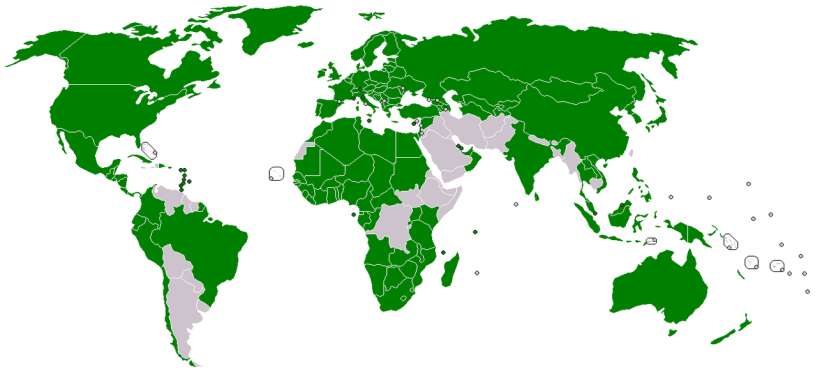This post was first published on July 16th, 2014.
Patent protection is territorial in nature. A patent application filed in a country can entail the enjoyment of patent rights in that country only and thus a patent application has to be filed in countries where the applicant intends to gain protection. Thus in order to seek patent protection in multiple countries, the applicant will have to file the application in each of these countries. There is no limitation on the number of countries where a patent application can be filed. A foreign application can be made in the following ways:
- Direct foreign filing: The applicant can file a provisional or non-provisional application directly (without claiming any priority) outside the country of his residence. Most jurisdictions have made it mandatory for applicants to obtain a foreign filing permit before filing an application outside the country of their residence without first filing in country of their residence, provided that the invention originated in the country of their residence. The Indian Patent Law also mandates obtaining a license to file the application outside India.
- Claiming priority of a national application: A foreign application can be filed within 1 year of the earliest priority date. This deadline is non-extendable in nature. Thus, if a provisional application is filed in India, the deadline to file the application outside India is 1 year from the date of filing of the provisional application. Only a complete specification can be filed in foreign countries. Thus if the application claims priority from a provisional application, within 1 year of filing the provisional application, a complete specification has to be filed in foreign countries, if interested.
There are 2 ways to file an application outside India.
1. Convention route: A patent application can be filed in all countries which are signatories to the Paris Convention. The patent application will have to be filed in accordance with the norms and requirements of the country where the applicant intends to file for patent protection. The prosecution of the application will also be subject to the laws of the country. It is advisable to appoint a patent agent to file and prosecute the application in the country.
2. PCT route (International application): This route is a procedure for the filing and processing of a single application for a patent in multiple countries. This is advisable when the application is to be filed in more than 3 countries due to its cost-effectiveness. This is a preferred route as it provides a global search opportunity and advises the client on potential patentability of his invention. Filing an international application does not mean that the patent will automatically be granted in the countries of interest. In order to obtain patent protection in countries of interest, a national phase application in respective countries will have to be filed. The application takes 30/31 months to enter national phase i.e., filing and processing of the application in individual designated countries of interest to the applicant. This gives the applicant ample time to make an informed decision and enter the desired country.
In PCT the following basic fees have to be paid:
- Transmittal Fee
- International Filing fee: a 90% fee reduction can be enjoyed by individual applicants.
- Search fee
- Priority fee
- Examination fee (optional)
The above-mentioned fees remain the same irrespective of the countries you want to file national phase application in. However, examination of the application at the PCT stage is an optional step. The examination and search fee differs based upon the examination/search authority chosen by the applicant. This fee is paid before the applicant enters the national phase. Once it enters the national phase, the application is subject to the rules of the country entered into. Thus, the fee for processing of the patent application differs from country to country. At the national phase, discounts for individual applicants are subject to the laws of the country.
The prosecution of the application can be accelerated across jurisdictions using various methods which will be discussed in upcoming posts. Obtaining protection in multiple nations establishes a presence in the global market and thus has a potential impact on the revenue that applicants can generate for the invention.



